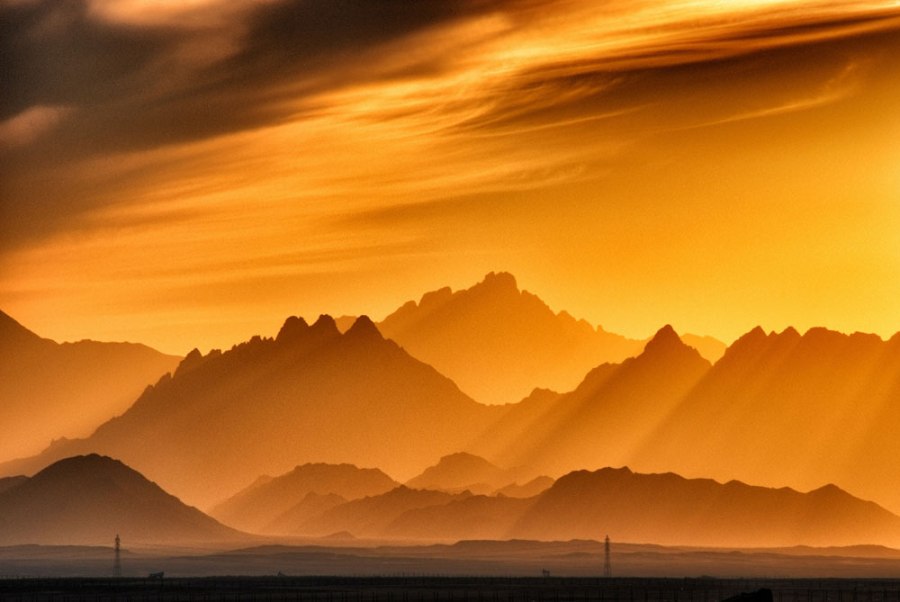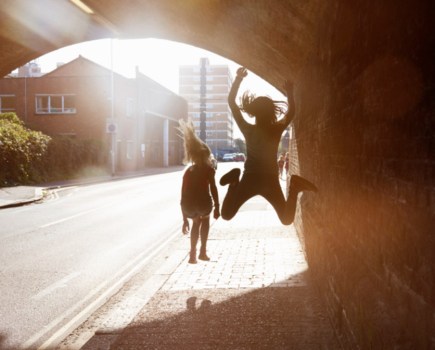Photography is an incredible medium that is used by millions of people across the globe. Some people use photography to make a living (myself included) whereas others use it as an escapism – a way to unwind and shut out the pressures of everyday life (also myself included!). Being about to find joy and inspiration in photography is an essential skill.
Some photographers like to tell stories through the medium or record a monumental moment in history, while others want to focus on the beauty in this world and natural surroundings or create artwork that is abstract. However you use photography and whatever genre/s you like to shoot there are many ways to find joy and inspiration from the medium.
Welcome to the AP Improve Your Photography Series – in partnership with MPB – This series is designed to take you from the beginnings of photography, introduce different shooting skills and styles, and teach you how to grow as a photographer, so you can enjoy producing amazing photography (and video), to take you to the next level, whether that’s making money or simply mastering your art form.

Each week you’ll find a new article so make sure to come back to continue your journey, and have fun along the way, creating great images. If you’ve found these articles helpful, don’t forget to share them with people you know who may be interested in learning new photography skills. You’ll find a whole range of further articles in this series.
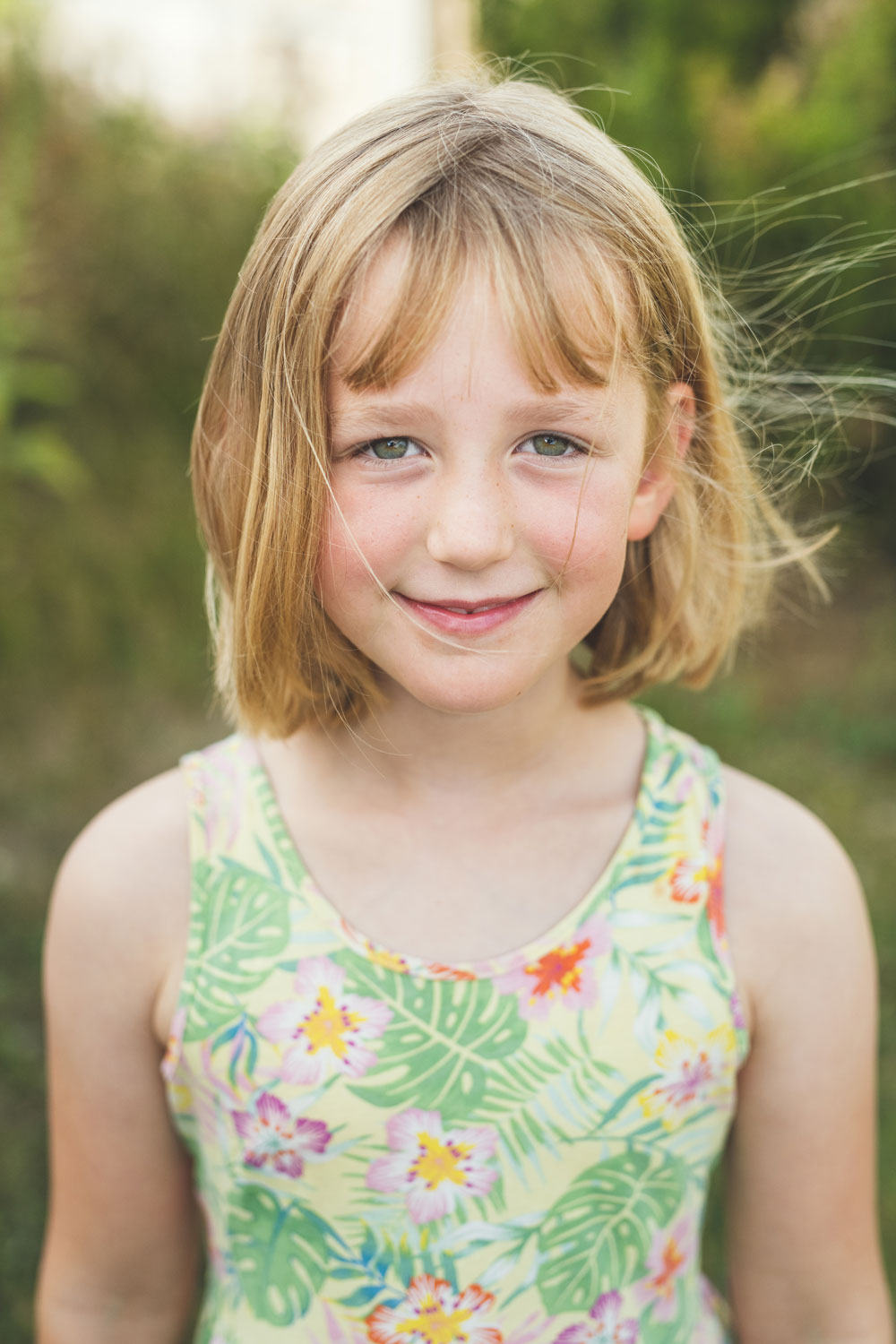
There are many ways to find inspiration from the medium such as photographing a close family member as I have done in this image taken of my daughter, Copyright: Claire Gillo
Drawing inspiration from others
To grow as a photographer and to find inspiration learning from others is a great place to start. For example, I recently attended a talk by photographer Cristina Mittermeier and I was completely inspired not only by her passion for the medium but also her dedication to the environmental cause. Cristina is a photographer that uses her skills to educate and to make change. After her talk I felt inspired to think about my own practice, and work out how I could put more time aside to focus on the projects and subjects that are important to me. It’s very easy for time to go by and to not do or achieve what is important to you.
Know the medium
If you haven’t already studied the history of photography, it’s an incredible medium that has evolved and progressed through many technologies. Photography ranges from simply taking family snaps of your loved ones to creating high end artwork. You can draw so much inspiration from the masters of the past whatever it is you are trying to shoot. For example, if you’re a landscape lover study the original pioneer of the traditional landscape medium Ansel Adams. Adams is a true master, and from engaging with his work you can learn so much about exposure and composition and then apply these techniques to your own photography.
If portraiture photography sparks your interest, look at photographers like Richard Avedon, Annie Leibovitz and Diane Arbus for inspiration. Study how they manage to capture the essence of a person and how differently they all approach the portraiture genre. And you don’t need to stop there! Engage with the artworks of great Renaissance painters such as Leonardo da Vinci, Rembrandt, Jan van Eyck and Raphael to name but a few. Their paintings are exemplary examples of how to frame and light a portrait. Look at how the light falls onto the subject and work out how you could replicate this effect with your camera. Photographers even use a dramatic and moody lighting technique called Rembrandt!
As outlined above it doesn’t just have to be photographers in the creative industry that you can draw inspiration from. To broaden your knowledge and to gain a bigger understanding look at artists, painters, sculpturists, film makers, installation artists, the theatre, cinema really anything or any subject that gets you inspired.

Many portrait photographers are inspired by painting and by studying the Renaissance painters you can improve your lighting and shooting technique, Copyright: Mohammad Hoseini Rad on Unsplash
Join a group
With there already being so many people interested in the photographic medium, it means there is an established supportive network out there ready to go. Sure, there may be one or two who feel the need to criticise or critique your work (even though you never asked), however the majority of photographers and enthusiasts are really nice people who just want to share in each other’s passion for the medium. We can learn so much from others and inspire others as well when we share our photography. Think about joining your local camera club or searching for a like-minded facebook group and engaging online to get started. More reasons why you should join a photography group.
If you want to take it to the next level you may also want to think about enrolling on a course. There are many different types of courses out there from beginner photography courses to studying a Masters or even a PHD (for those academics).
Being part of a network and community will help you draw joy and inspiration from the medium and enable you to progress forward.
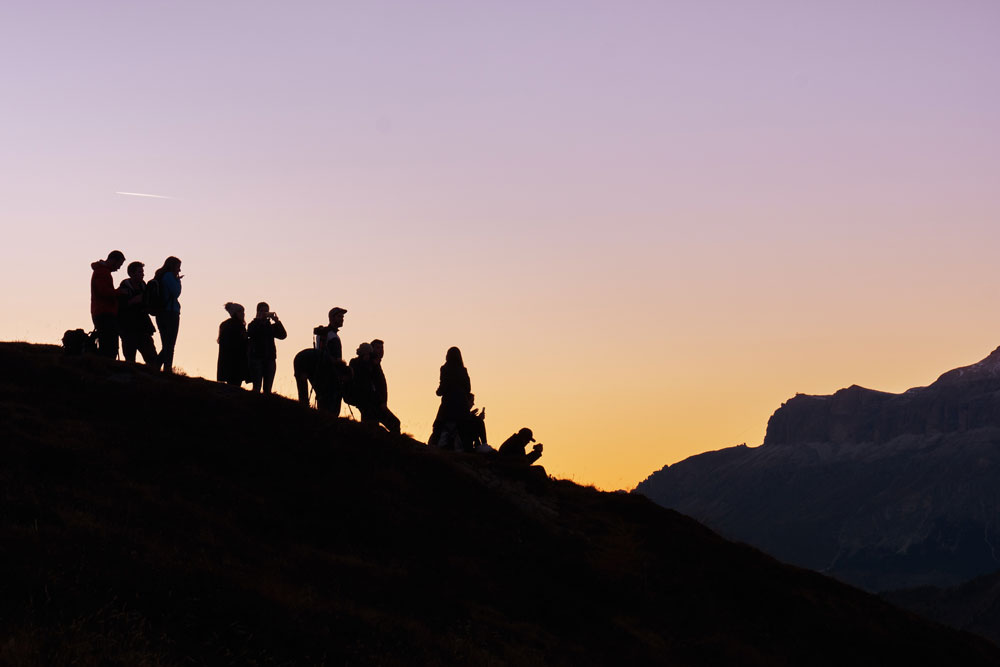
By joining and network and engaging with other photographers you’ll find your photography grows, Copyright: Luca Bravo on Unsplash
Set yourself a goal
When you feel stuck in a rut or not sure where to turn next it’s time to set yourself a photography challenge or goal. For example if you enjoy shooting landscapes plan to photograph at least four sunrises or sunsets over the next month. Even if the weather is not as you hoped, get out there anyway. You never know what you’re going to come back with and you may even capture a winner. It’s good for your progression if you search for an alternative angle or work in conditions that you weren’t expecting. By setting yourself deadlines, engaging in a project or having an end goal it means you’ll feel focused with your photography that in turn will help you to feel inspired. But if you’re struggling to even start then…
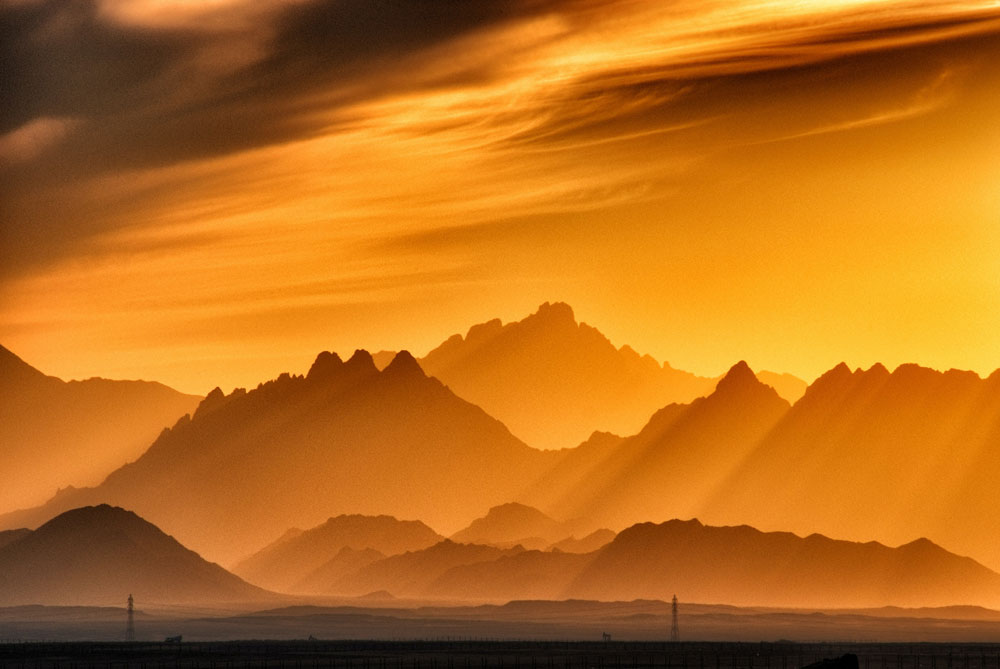
By setting yourself a goal and putting time aside you’ll find you come back with some inspiring pictures, Featured image / Copyright: Sergey Pesterev on Unsplash
Pick a theme and set boundaries
We all have times in our practice where we can feel a little flat or uninspired, and when this is the case pick a theme to help you focus (excuse the pun). If you can’t think of a theme, ask a friend or family member to write some down and pull one out of a hat! It can really help to get the cogs turning and to produce something different from the norm if you approach a subject in an alternative way or by thinking about how you’re going to take images to fit a set criteria.
Some may feel restricted working in this way but for others boundaries can actually inspire as they create a new way of looking at a subject. I easily get distracted and at times have found my ideas to become too big and open. Sometimes by bringing them back and by setting restrictions it can help to create some inspiring work.
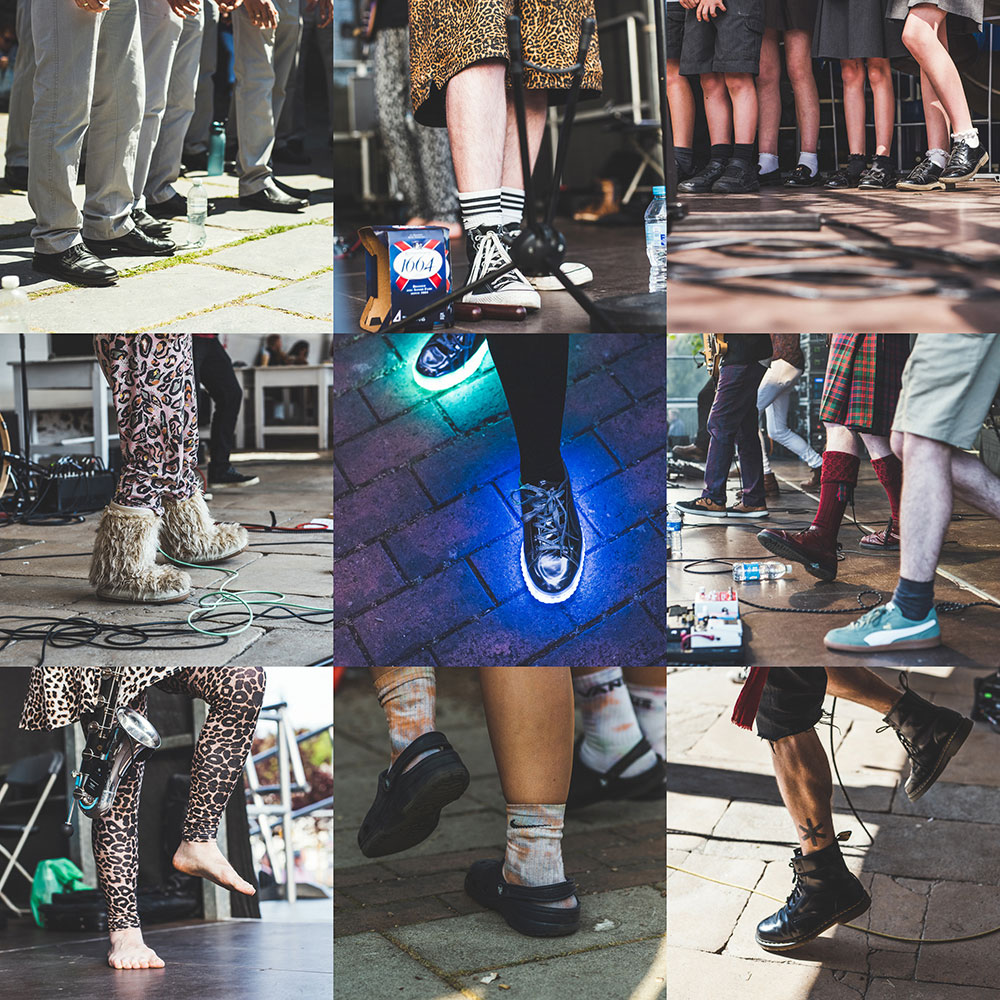
As a little side project whilst photographing a music festival I also selected the theme feet to add another angle and to mix up the angles I was shooting from. Copyright: Claire Gillo
Do your photography for you
This may sound like obvious advice but it needs to be stated – only do your photography for you. Even if you are taking images for a client, have your style in the back of your mind and think, am I happy with this? Does this work reflect me and my style? For example when I am employed by a company to brand their business or product/s I first ensure that they like my style. This is really important as I’m not willing to compromise by trying to imitate someone else. If they don’t it’s not the right job for me and I move on. After years of experience I’ve worked out if you are not genuine you will be miserable.
This advice is also good to follow if you share images on social media. Don’t chase the likes and compromise on what you want to do. I recently made the mistake of doing just this and instantly regretted it. I was trying to create a Reel from my still images and in the end it just looked rubbish and made me realise even though I won’t get as many likes I should stick to presenting my work how it looks best. Having hundreds of likes may feel good in the short term but in the long term the work you share should be the work you are most proud of regardless of what other people think. Being genuine brings both joy and integrity to you as a photographer.
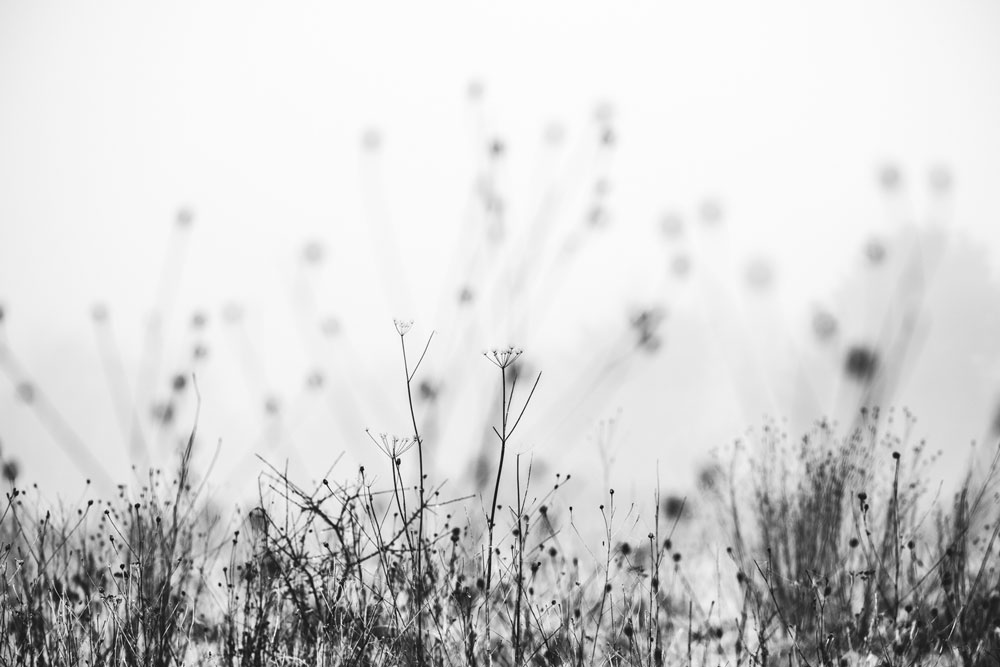
I like to put time aside to focus on my fine art landscape work that looks at form and nature where I live. Copyright: Claire Gillo
Don’t think that kit will fix it (although a bit of a treat is always nice!)
We all love a bit of new kit right? Of course we do! When you first shoot using that lens you’ve been saving up for months, or you unbox your shiny new camera and hear the shutter click for the first time you can’t help but feel a little excited! And often we do feel inspired in the short term but in the long term our kit is just a tool and it’s our ideas and our dedication to the medium that is where we will find our joy and inspiration.
Try not to get fixated with buying all the latest gadgets and gizmos as although they can make the job a bit easier ultimately it is our ideas that will inspire us and others greatly.
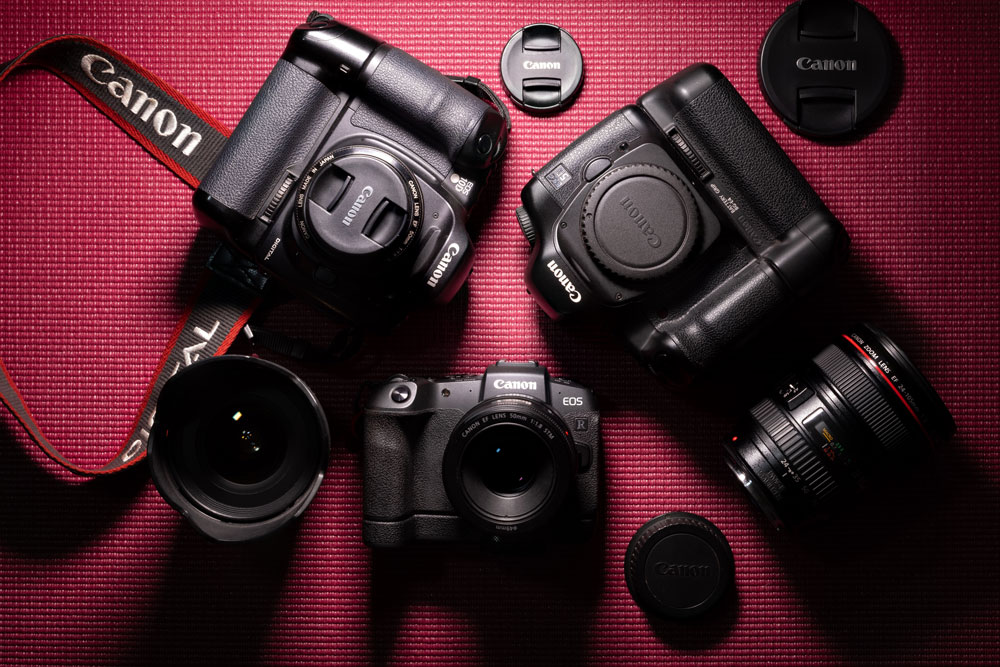
Don’t get fixated on buying all the latest kit as essentially your camera is just a tool and it is your ideas that are the most important thing, Photo by Robin McSkelly on Unsplash
Have confidence in yourself
It can be hard to have confidence in yourself if you’re feeling overwhelmed, however by believing in yourself others will believe in you too and this in turn will help you feel inspired.
Having confidence should not be confused with being arrogant or overconfident. You’re not trying to say I am the best, as having confidence means failing and trying again after you’ve failed. Having confidence is trying something new. Having confidence is sharing your work openly and being open to criticism. Having confidence is saying I don’t know about that but I want to learn. Having confidence is investing in yourself and believing something will work.
If you keep going and have confidence in yourself you will feel joy and inspiration with your photography.
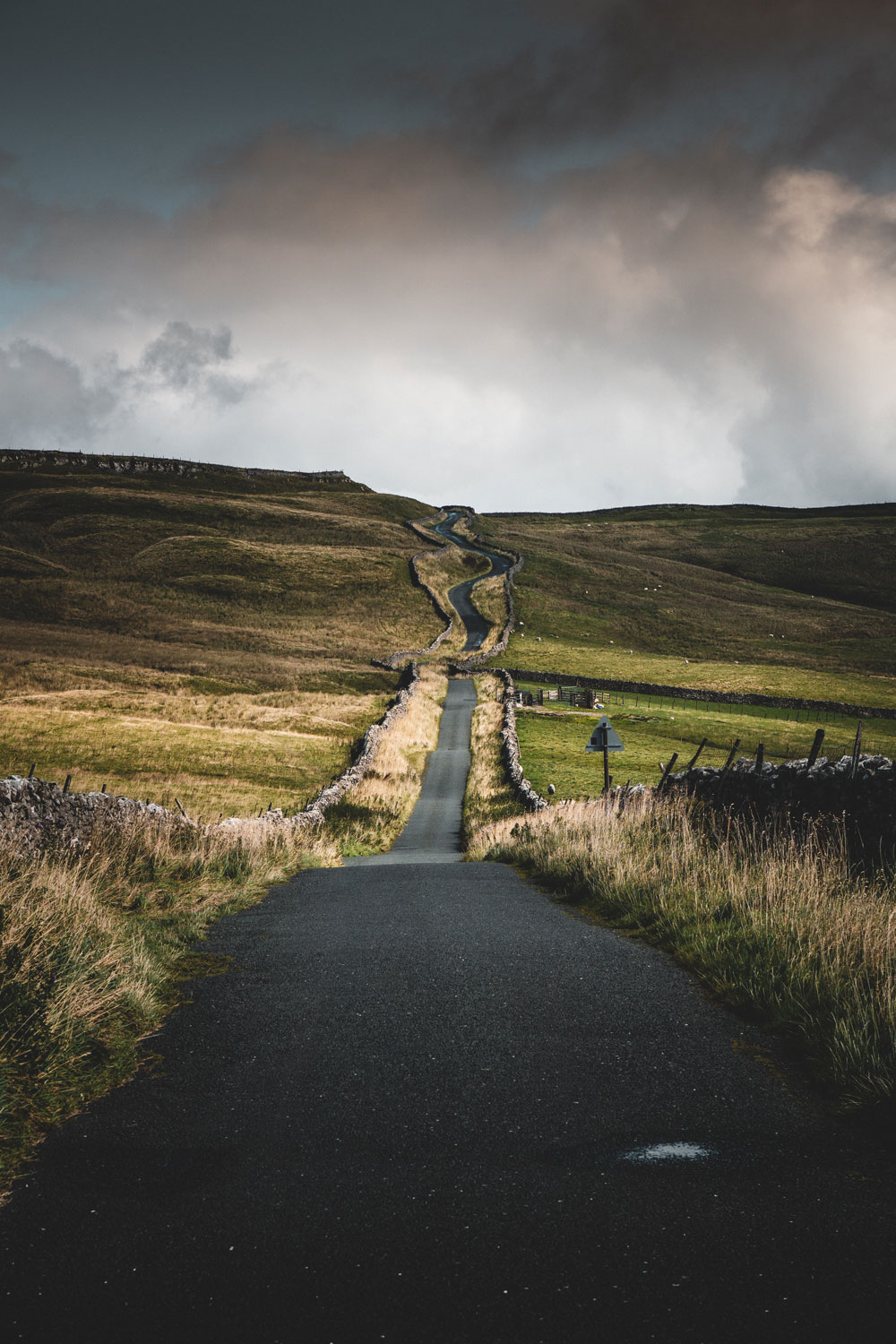
Keep going and have confidence in what you do as your photography journey will take you to some amazing places, Copyright: Illiya Vjestica on Unsplash
Find more joy and inspiration:
The enduring appeal of fixed lens cameras
The best landscape books for inspiration
Tune in next week, for the next article in the series of the AP Improve Your Photography Series – in partnership with MPB.
- Part 1: Beginners guide to different camera types.
- Part 2: Beginners guide to different lens types.
- Part 3: Beginners guide to using a camera taking photos.
- Part 4: Beginners guide to Exposure, aperture, shutter, ISO, and metering.
- Part 5: Understanding white balance settings and colour
- Part 6: 10 essential cameras accessories for beginners
- Part 7: Beginners guide to the Art of photography and composition
- Part 8: Beginners guide to Photoshop Elements and editing photos
- Part 9: Beginners guide to Portrait Photography
- Part 10: Beginners guide to Macro Photography
- Part 11: Beginners guide to Street Photography
- Part 12: Beginners guide to Landscape Photography
- Part 13: How to shoot Action and Sports Photography
- Part 14: How to shoot wildlife photography
- Part 15: Raw vs JPEG – Pros and cons
- Part 16: How to create stunning black and white images
- Part 17: How to photograph events and music
- Part 18: Pet photography – how to photograph pets
- Part 19: The ultimate guide to flash photography
- Part 20: The ultimate guide to tripods
- Part 21: Create awesome photos with light painting
- Part 22: Beginners guide to file and photo management
- Part 23: How to shoot food photography
- Part 24: Complete guide to outdoor light
- Part 25: Top tips for stunning car photography
- Part 26: How to master waterfall photography
- Part 27: How to use social media as a photographer
- Part 28: How to get started in film photography
- Part 29: How to connect your camera to your phone
- Part 30: How to make a great video recording with your camera
- Part 31: Why you should join an online community
- Part 32: Find the best online website to share and sell your photos
- Part 33: How to photograph weddings – our guide to wedding photography
Find the latest Improve Your Photography articles here.

